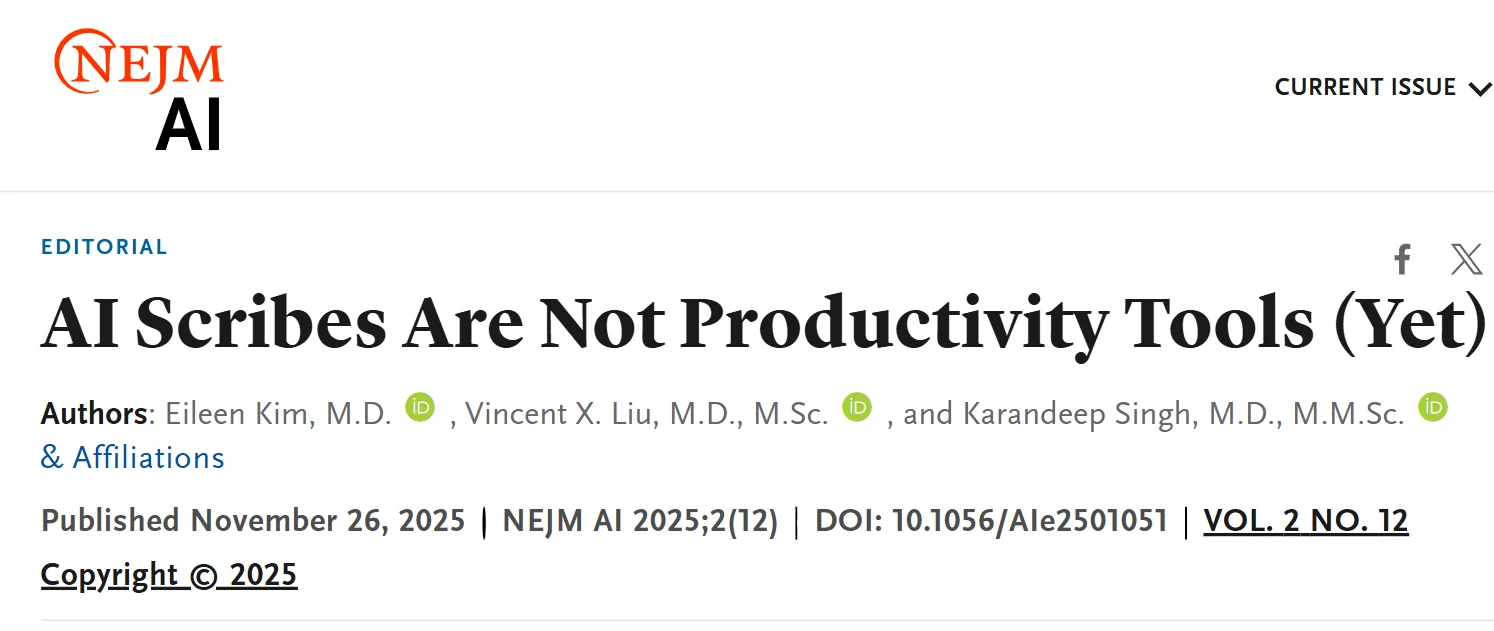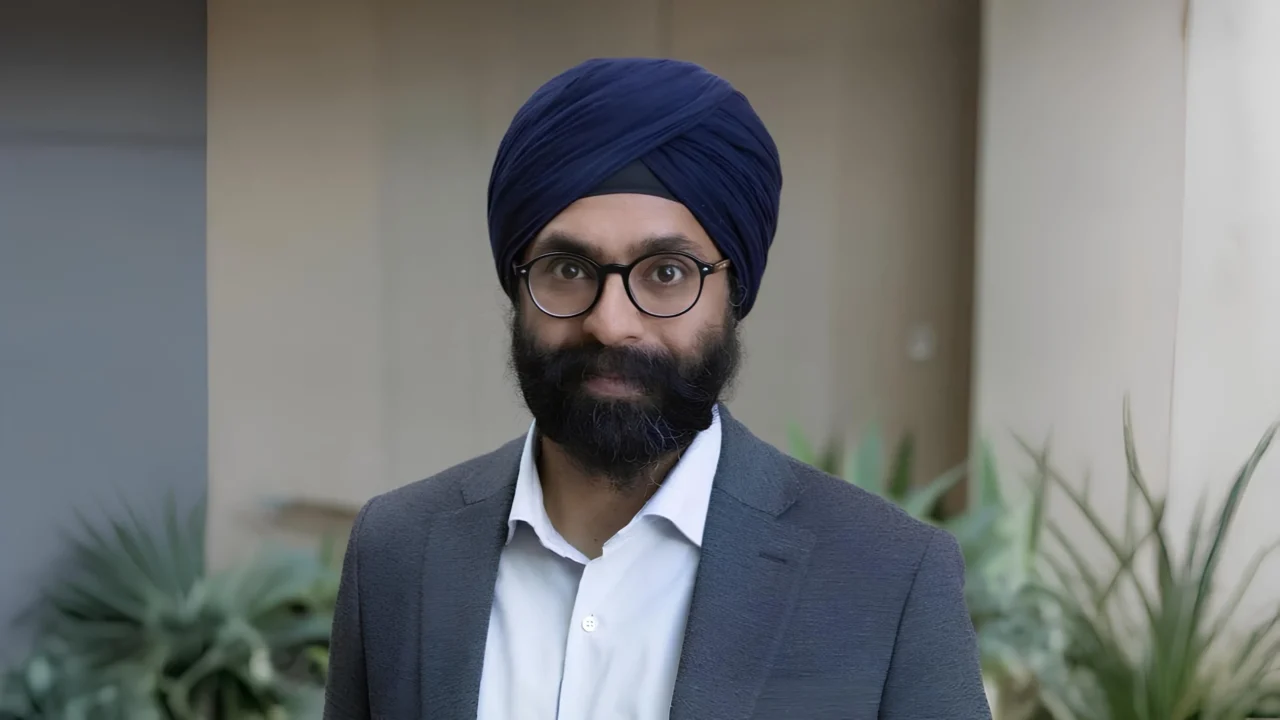Karandeep Singh, Chief Health AI Officer and Executive Director of Joan and Irwin Jacobs Center for Health Innovation at UC San Diego Health, shared a post on LinkedIn about a paper he co-authored with colleagues published in NEJM AI:
“Two years after the release of AI scribes, today marks the publication (in NEJM AI) of the first 2 RCTs of AI scribing tech on clinician outcomes with a comprehensive look at their potential to create time savings. Across 2 centers and 3 products (Abridge, DAX Copilot, and Nabla), time savings ranged from 7-22 minutes per day, with the caveat that even some of these may be overestimates because of reliance on Epic Signal data.
Health systems relying on AI scribing tech to “pay for itself” by creating sufficient time for additional patient visits may be disappointed. But AI scribes definitely reduce burnout, and additional capabilities (like order entry, real-time prior auth) may make those tools even more helpful.
Along with Eileen Kim and Vincent Liu, we lay out reflections in our editorial.
Credit to Majid Afshar, MD, MSCR et al and Paul Lukac, MD, MBA, MS et al for the rapid generation of high-quality evidence via RCTs.”
Sarah Sammons, Breast Medical Oncologist at Dana-Farber Cancer Institute, shared this post, adding:
“This is why I don’t use them yet though have access.
Now show my one that adapts to my previous notes, style, orders the scans/labs that I say I will order (I will sign), I will change my mind.”
Title: AI Scribes Are Not Productivity Tools (Yet)
Authors: Eileen Kim, Vincent X. Liu and Karandeep Singh
You can read the Full Article in NEJM AI.

More posts featuring Sarah Sammons.


